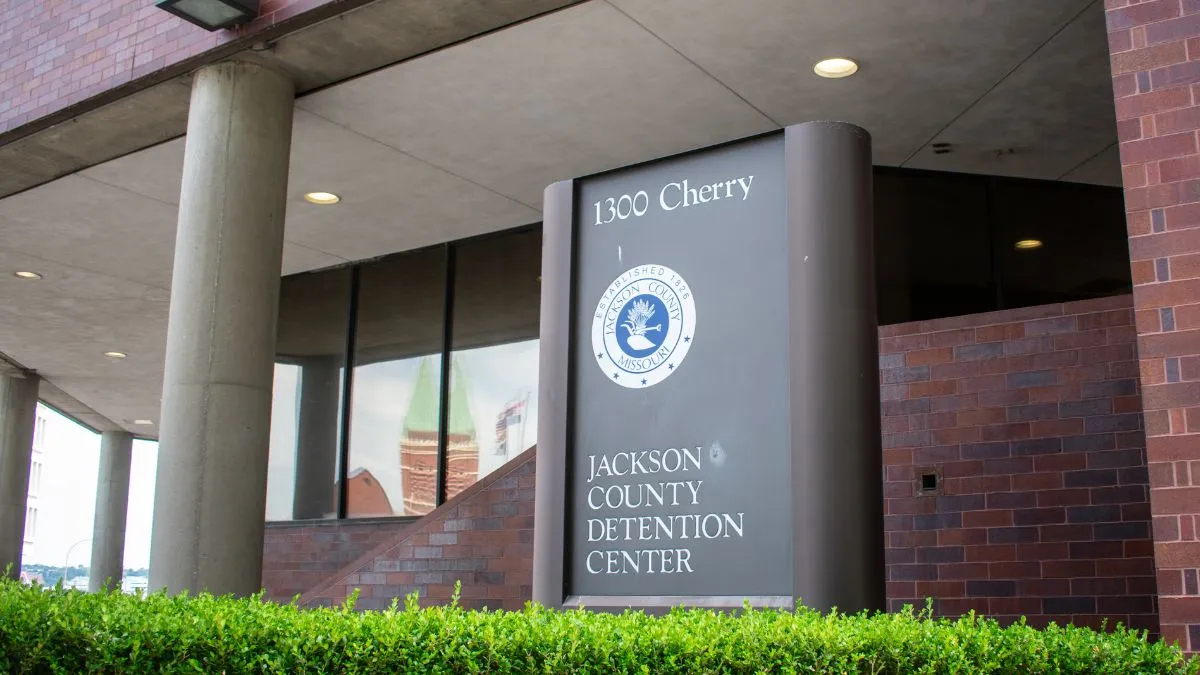Missouri counties say they lose money housing people headed to state prison

The cost of holding someone in a Missouri county jail for those days and months before and after a conviction ultimately falls to the state.
In 2024, the state spent about $50 million to reimburse counties for the cost. But it’s had trouble keeping up with that tab.
That’s left counties stuck with most of the cost, even as the General Assembly has scraped together money to reimburse the expense of holding people in those counties — at a rate that doesn’t really make local governments whole.
It costs one county in southwest Missouri $750,000 a year to hold people on state charges. The reimbursement from the state, $225,000, doesn’t stretch too far.
“There’s over a half a million dollars that the county’s on the hook for,” said state Rep. Donnie Brown, a New Madrid Republican who sponsored a bill to make the state pay counties more for holding its prisoners.
Lawmakers bump county paychecks from state prison system
The state pays counties $22.58 for every day a person who should be in a state prison is in a county jail. Brown said that in his area, it actually costs about $45 a day. In more expensive areas, like Jackson County, that cost can be as high as $120 a day.
The state rate has hovered anywhere from $20 to $22 a day since 1998, depending on how much the legislature chooses to spend. Within state prisons, it costs around $90 per person a day.
“Our law enforcement is trying to put public safety first,” Brown said, “but they’re also having to live on a budget that is, a lot of times, insufficient.”
He sponsored a bill during the 2024 legislative session to get the attention of the budget committees in the House and Senate. With support from counties and the Missouri Sheriffs’ Association, Brown wanted to raise the reimbursement figure to $40.
While his bill didn’t pass, it drew the attention of the budget committees. They increased the pot of money dedicated to paying counties back by $5 million, upping the reimbursement rate to $24.96 a day.
Meanwhile, sheriffs have to navigate an antiquated payment system to get paid by the state for boarding its inmates. For starters, a sheriff must confirm that the county has been holding a person who is technically in state custody. Then the circuit court clerk has to sign off on it. Only then is the reimbursement request sent to the Department of Corrections to pay out.
“The time lag could be significant, but that’s not the Department of Corrections’ fault,” Steve Hobbs, the executive director of the Missouri Association of Counties, said at the bill’s hearing earlier this year. “That’s our fault at the county level, and we’re trying to do things working with Corrections to streamline that process.”
Missouri’s unique standing
A recent report from the Prison Policy Initiative, a criminal justice reform group, found that Missouri incarcerates its residents at a higher rate than the national average. For every 100,000 people in the state, 713 of them are incarcerated. In the United States, the number is 608 per capita.
But it is also the only state that reimburses counties for the fees associated with housing a prisoner before and after that person is convicted of state-level crimes.
In most states, counties only get reimbursed after a state conviction — not for the time someone is locked up waiting for trial.
In 2019, the Department of Corrections surveyed the 49 other states to see if county jails were reimbursed for time spent in jail before a person’s trial. Of the 30 states that responded to the DOC’s survey, none provided county reimbursement for pretrial days.
In 2020, the state auditor’s office took a look at the county reimbursement program. The office found that, of the 61% of sheriffs who responded, 73% of their jail populations were awaiting trial for a felony offense.
That number is higher than the national average. The Prison Policy Initiative also found that 69% of the jail population nationwide were those awaiting a trial.
In 2017, then-Gov. Eric Greitens established the Missouri State Justice Reinvestment Task Force. It concluded that the number of people in pretrial detention and a lack of public defenders drove the rising jail population.
“There are places around the country that have chosen to invest more in their public defense systems, because that’s just another way of coming at this problem,” said Wanda Bertram, a communications specialist at the Prison Policy Initiative.
Some Democratic lawmakers have filed bills in the past to eliminate pretrial reimbursement and raise the rate the state pays after someone is convicted. They’ve had little traction.
Brown expects to file his reimbursement bill again next year to try and raise the prison reimbursement rate closer to $40 a day.
“It’s not like we’re asking the state to totally make the county 100% whole,” Brown said. “We’ve got to help them find another revenue source to make things right.”
Miss Clipping Out Stories to Save for Later?
Click the Purchase Story button below to order a print of this story. We will print it for you on matte photo paper to keep forever.

